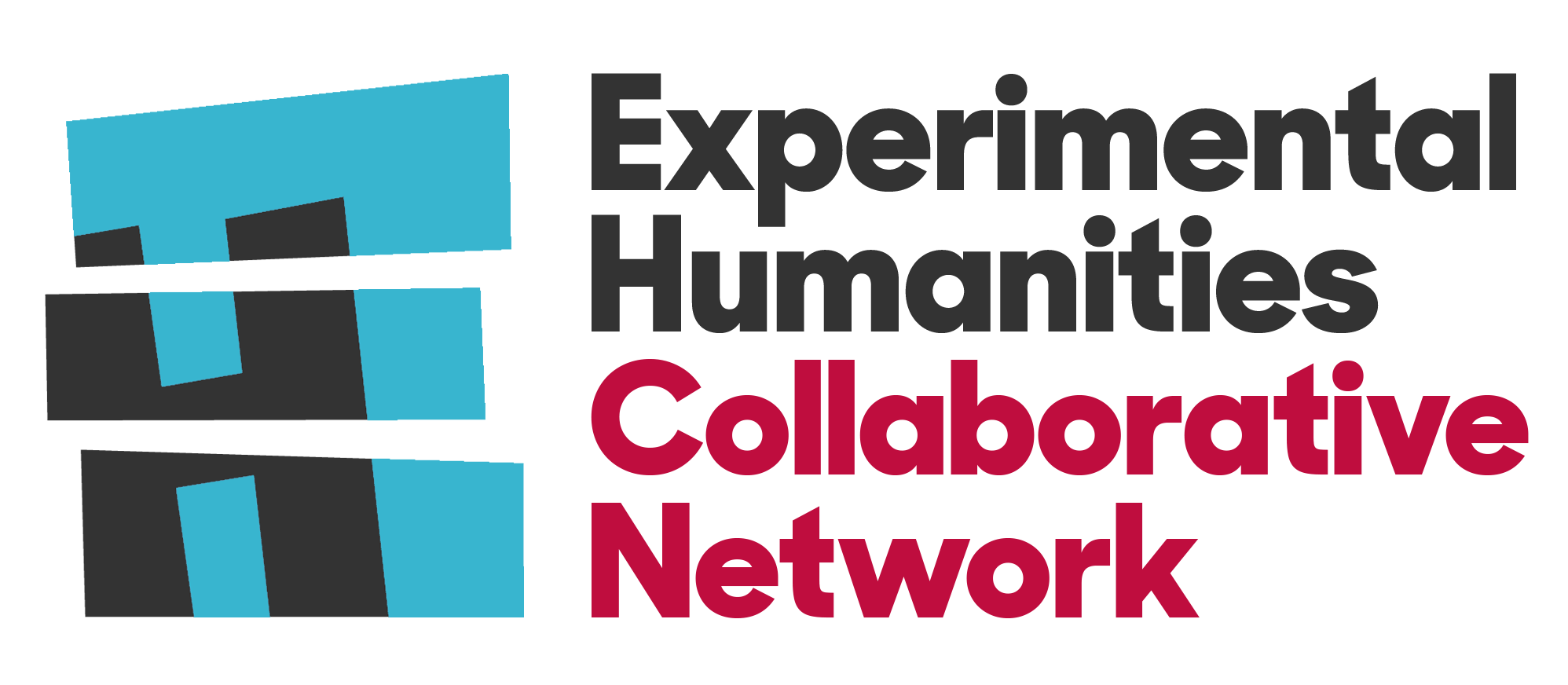Welcome to The Experimental Humanities Collaborative Network
About EHCN
A hands-on and critical approach to the role of technology throughout history.
A deep commitment to grassroots movements for political, environmental, and social justice.
The cultivation and support of creative practice as an engine of experimentation in the humanities and change across the disciplines and in the public sphere.
How have scientific, intellectual, and artistic experiments reshaped human experience in diverse historical and cultural contexts, and how might they shape our shared futures?
Experimental Humanities Collaborative Network (EHCN) supports innovative and interdisciplinary research at the intersection of the arts, technology, and the humanities; pedagogy that emphasizes skills-based learning with a range of technologies, critical reflection, and social justice; and digital and face-to-face public projects that promote civic engagement in order to imagine more just technological realities. As part of the Open Society University Network (OSUN), the EHCN also aims to ground its work in endeavors that link scholars and students from different institutions in long- and short-term projects and collaborations.
EHCN insists on the power of grassroots leadership, and invites an array of collaborators to the table. Its courageous—and often playful—experimentation with both “old” and “new” technologies flattens hierarchies not just between academic disciplines but between the academy and local communities. Not only working with each partner institution to emphasize its unique local technological, environmental, and cultural ecology, EHCN also creates opportunities for partners to share the lessons of their distinctive experiences with a larger global community.
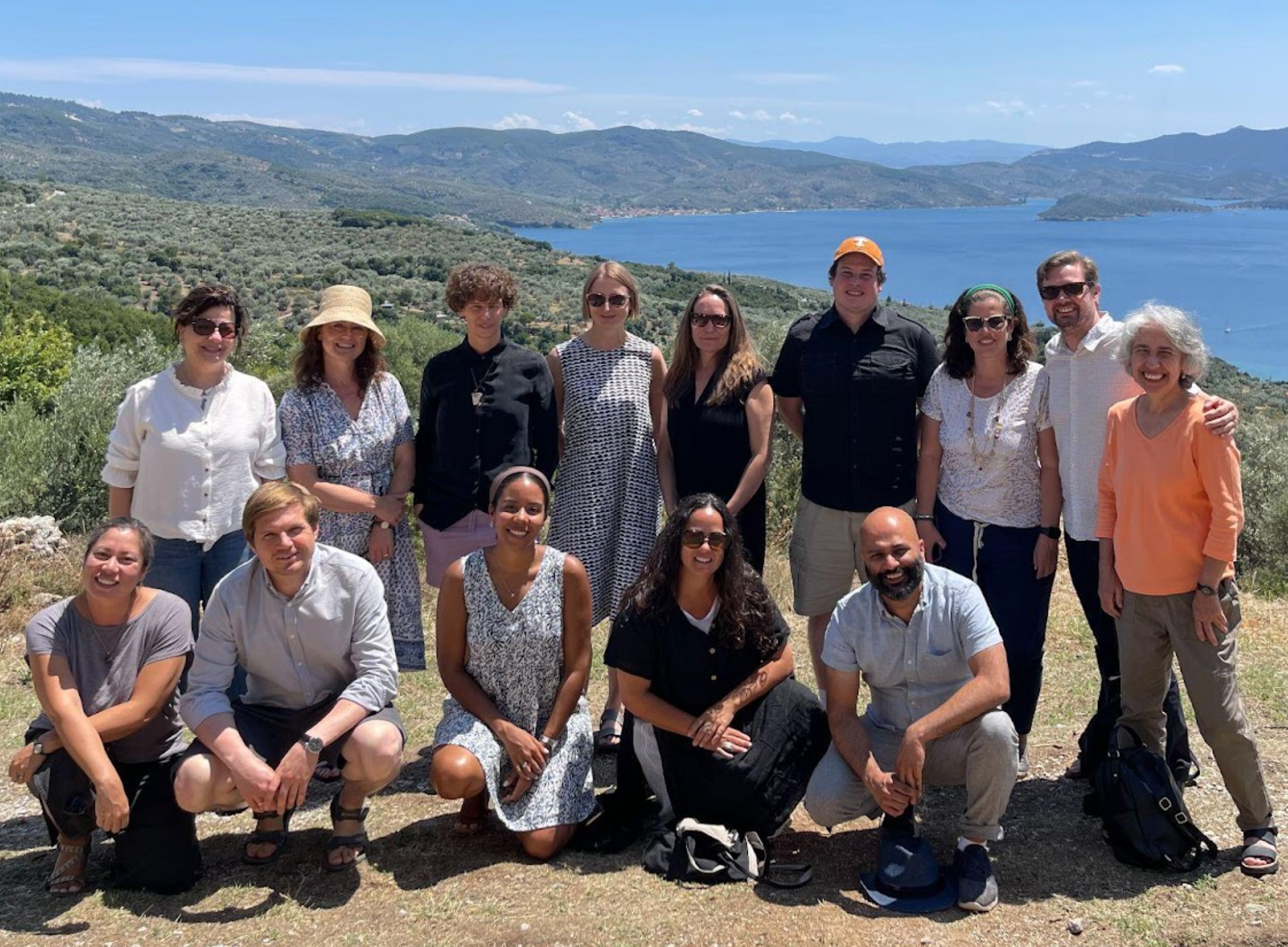
Partner Institutions
Steering Committee
Krista Caballero
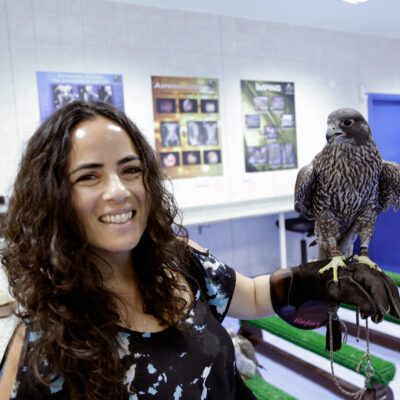
Bard College Annandale
Krista Caballero is an interdisciplinary artist exploring issues of agency, survival, and environmental change in a more-than-human world. Moving freely between traditional and emerging media, her work explores the messy and often surprising encounters between human, ecological, and technological landscapes. In 2010 she created Mapping Meaning, an ongoing project that brings together artists, scientists, and scholars through experimental workshops, exhibitions, and transdisciplinary research.
Caballero was selected as a 2017 Smithsonian Artist Research Fellow and is now a Smithsonian Research Associate working with the National Museum of Natural History researching the cultural implications of bird species decline. She has also been awarded residencies from organizations such as the Skowhegan School of Painting and Sculpture, ME; Pyramid Atlantic Art Center, MD; and Caldera Arts, OR. Her artwork has been presented nationally and internationally in exhibitions and festivals such as the International Symposium on Electronic Art (ISEA); the North American Ornithological Conference; “Paradoxes in Video” at Mohsen Gallery in Tehran; EXTREME. ENVIRONMENTS / RAY2018 Photo Triennale in Germany; Balance-Unbalance International Festival in Queensland, Australia; “A New We” at Kunsthall Trondheim in Norway; Foggy Bottom Outdoor Sculpture Biennial, Washington D.C.; and the Association for Computers and the Humanities. Caballero received her MFA from the School of the Museum of Fine Arts/Tufts University and is currently the Co-Director of the Center for Experimental Humanities (EH) and Artist in Residence at Bard College.
Luisa Colón
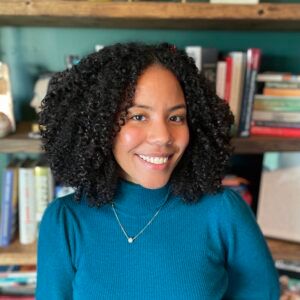
Bard College Annandale
Luisa Colón is the Program Manager for the OSUN-funded Experimental Humanities Collaborative Network (EHCN). In this role, she helps facilitate network operations and maintain meaningful collaborations among all EHCN partner institutions.
Prior to joining the Bard community, Luisa worked for various private and nonprofit organizations in the fields of international education and community development. She managed programming in Latin America for Amigos de las Américas and The New School and taught English as a Second Language in Thailand and New York. Her interests lie in the intersections of community-based development, international relations and international education. She appreciates the opportunities to learn and do more about meeting local and global challenges and to engage with diverse groups of people.
Luisa earned a BS in Business Administration with concentrations in International Management and Marketing from Boston University.
Kristen Fort
American University of Central Asia
Kristen Fort is Assistant Professor in the Department of General Education at American University of Central Asia (AUCA). She joined the department in 2020. In 2019 at University of Michigan, she defended her dissertation, entitled Inhabiting Socialist Realism: Soviet Literature from the Edge of Empire (1914-1992), in which she explores the relationship between Russian and Uzbek literature in the 20th century. She argues that 20th-century Uzbek literature is demonstrative of how non-Russian litterateurs of the Soviet empire inhabited, a la Bourdieu, Socialist Realism, a hegemonic set of Russian literary conventions and tropes, by adapting it, in various ways over the Soviet century, to local literary traditions and demands. She is currently working on expanding that dissertation into a book.
She is the author of articles on Tolstoy and Pelevin, and the translator of two Uzbek novels: Abdulhamid Sulaymon o’g’li Cho’lpon’s 1934 novel Night and Day and Isajon Sulton’s 2010 novel The Eternal Wanderer.
Her current interests and projects include literary translation, postcolonialism, postsocialism, and onomastics. With grants received from the Open Society Network’s Experimental Humanities Collaborative Network (EHCN), she has developed and directed AUCA’s contribution to the EHCN’s To Be Named project. AUCA’s contribution, tentatively titled “My Name, My Story,” includes oral history interviews with students and community members about their names, the history behind them, and how they see their names as contributing (or not contributing) to their sense of self. These interviews will be collated and curated in a digital exhibition to be shared with other EHCN universities and with the Smithsonian in order to engage visitors with questions of postcolonialism and identity through the ordinary practice of naming.
Saida Hamad
Al-Quds Bard
Saida is a Lecturer and Head of the Media Studies at Al-Quds Bard (AQB). She majored in English Literature at Arizona State University for her BA and later obtained a Master's Degree in International Studies at BirZeit University. She has nearly thirty years of experience as a distinguished journalist and Media and Communication Specialist in some of the most leading organizations, including the World Bank, AL Hayat Newspaper (London-based), TF1 (French TV), ABC News, and ITN. Throughout her years of experience, Saida has accumulated a wide range of knowledge in the world of media and a diverse set of communication and analytical skills, of which she passionately transferred to her students at AQB. Saida’s teaching experience at Palestinian universities, including AL Quds Open University and BirZeit University (BZU) enhanced her commitment to further pursue and build her career in the academic field, promote knowledge and critical thinking skills, challenge the traditional media teaching methods in Palestine, and create new programs that enable students to creatively express themselves as journalists and reach a wider audience.
Joining AQB as a lecturer and head of the Media Studies program in the Humanities Practicing Arts Division in 2019, Saida attracted 40 students to the Introduction of Media Studies course. Given her experience and expertise in journalism, Saida revised the entire Media Studies program to further enhance the AQB’s innovative liberal arts education approach. This included adding new interdisciplinary courses, restructuring the academic plan, and diversifying topics across the department to meet the new challenges of the world of Media. She invited high-level guest speakers to AQB, thereby connecting the college more directly to the Palestinian media community in general. As head of the media program, Saida has incorporated excellent visiting faculty to strengthen the program and has an active role in several pedagogy and organizational College Committees. With the collaboration from her colleagues, Saida is now leading the creation of the Online Bilingual Art & Culture multimedia Journal Hannoon. The journal aims to critically engages Palestinian artistic and cultural life across its many forms and fora.
Before joining AQB, Saida lectured at Birzeit University (BZU) where she focused on integrating Information Technology, namely Web, Data, and Mobile journalism, with classic journalism. Specifically, Saida developed new interactive teaching methods in which students simulate a daily “editorial meeting” where they collectively overview and discuss local and international news, and work on writing their own news pieces. Moreover, she introduced the concept of multimedia production of news in the Journalism Lab, where students had to produce both infographic and video-graphic materials to reach a wider range of audience in the world of new media. During her time at BZU, Saida worked with her students to create, write, design, and publish two magazines per semester. These courses provided the students with realistic, interactive, practical, and fundamental tools to utilize in their future careers.
Prior to teaching at BZU, she worked as a Chief Editor and Programs Director and Presenter at Wattan Palestinian TV station. Saida also worked as a Results Reporting and Communications Specialist for the USAID Palestinian Health Sector Reform and Development Project (2009- 2011). In 2009, she also worked as a Project Director with the USAID/NETHAM where she worked on Palestinian media in law and court reporting. Before then, Saida was the External Affairs and Communications Officer for the World Bank in Jerusalem.
Saida was the Bureau Chief for Alhayat-LBC for nine years in which she covered the Israeli-Palestinian conflict including reporting live coverage of daily events and special exclusive interviews, Investigative reporting, analytical features in addition to managing field reporters in Gaza and Haifa. Moreover, Saida conducted exclusive interviews with prominent political, social and economic figures under highly dangerous and critical situations including late President Arafat (when he was besieged and before and after) and president Mahmoud Abbas. She has also covered Abbas' famous visit to the White House after he was appointed as a
Prime minister. Furthermore, she covered The Hague Court rolling on the Israeli Wall being built on the West Bank Land. This included live coverage plus in-depth reportage.
Saida also worked as a Producer for the T.F.1 in Jerusalem for 12 years and contributed to other news-outlets such as ABC News, Monte Carlo Radio Station, Al-Quds Press International, Palestine Press Service, and Al-Fajr English Newspaper.
Gwyneira Isaac
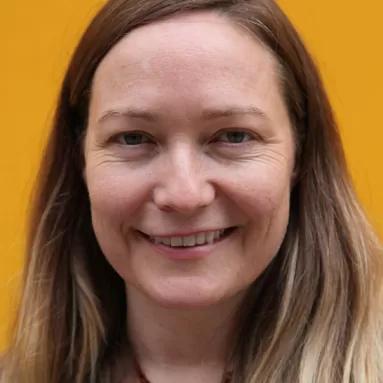
Recovering Voices, National Museum of Natural History, Smithsonian Institution
Gwyneira Isaac is a cultural anthropologist and Curator of North American Ethnology at the National Museum of Natural History (NMNH) at the Smithsonian Institution. Her research investigates the dynamics of and intersections between culturally different knowledge systems. Central to this study is her ethnography of a tribal museum in the Pueblo of Zuni, New Mexico, Mediating Knowledges: Origins of a Museum for the Zuni People (2007), in which she examines the challenges faced by Zunis operating between Zuni and Anglo-American approaches to knowledge. Her explorations into these knowledge intersections (either culturally or disciplinarily distinct), include how technology and media are used within the discipline of anthropology. She looks at the different values attributed to the reproduction of knowledge as explored through museum replicas in ‘Whose Ideas Was This?’ Replicas, Museums and the Reproduction of Knowledge’ (2012), as well as “Perclusive Alliances: Digital 3-D, Museums and the Reconciling of Culturally Diverse Knowledges” (2015). Currently, she is researching the history of face casting in the 19th and 20th century and the intersectional histories these now engage, where descendant communities, physical anthropologists and museums grapple with the legacies of these duplicated bodies. As part of the Recovering Voices program she helps to lead at the NMNH, she is working on exploring the use of collections by Native American communities within their cultural revitalization efforts. As part of this effort, in 2012, she formed the Health and Culture Research Group (HCRG) to bridge Anglo-American and Indigenous approaches to Native American health issues.
The project she brings to the EHCN OSUN group, To Be—Named, looks at the cultural politics of naming, especially via the intersections between different disciplinary naming practices, colonizing and decolonizing naming practices, as well as issues around naming and race. The aim of the project is to build bridges between the academy and diverse and Indigenous communities, as well as to find multi-modal methods, media and technologies that will help creatively and ethically assemble, exchange and build understanding around responsibilities towards knowledge diversity.
Maria José Afanador-Llach
Maria José Afanador Llach is an assistant professor in digital humanities at the Faculty of Arts and Humanities. She earned an M.A. and a Ph.D. in history from the University of Texas at Austin. Her research is centered in two main areas: the first one is the eighteenth century and the transition from colony to republic in northern South America through the lens of spatial practices, geographical imagination and political economy; the second one is digital humanities pedagogy, digital archives, digital history, spatial data curation, and cartographic narratives. She is editor of The Programming Historian en español (www.programminghistorian.org/es). Her most recent publications include: “The Globally Unequal Promise of Digital Tools for History: UK and Colombia Case Study” (in collaboration with Adam Crymble), Teaching History in the Contemporary World (Singapore: Springer, 2021); “Developing New Literacy Skills and Digital Scholarship Infrastructures in the Global South. A Case Study” (in collaboration with Andrés Lombana), in Global Debates in the Digital Humanities, edited by Fiormonte D., Ricaurte, P., Chaudhuri, S. (Minneapolis: Univeristy of Minnessota Press, 2022).
Sanjay Kumar
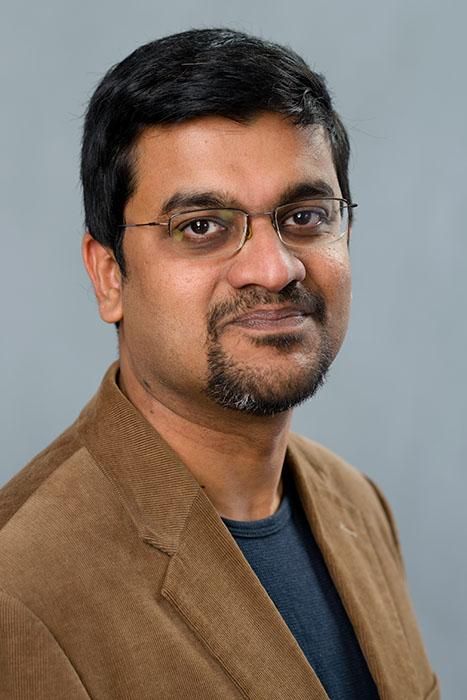
Central European University
Sanjay Kumar is a Lecturer in Central European University (CEU), Vienna. He has more than two decades of experience in Higher Education in Asia and Europe. Since 2010, he is affiliated to the CEU Center for Academic Writing and Department of History. Sanjay is trained in English Literature and did his PhD analyzing the relation between Indian Contemporary theatre and the urban experience. At CEU, Sanjay teaches courses in academic and policy writing in the departments of public Policy, Gender Studies, Nationalism Studies, and Postcolonialism and Nationalism in South Asia, Narratives, Artistic Theory and Practice for Undergraduate, Graduate and PhD students. He is associated with the Open Learning Initiative -Olive- Refugee Education Program since 2016 and designed and piloted a storytelling and theatre workshop with a Hungarian theatre director in 2016 in Budapest, Hungary. Sanjay has also worked with L1 Dance Fest Budapest in 2017 and 2018 as one of the conceptual organizers of the academic symposiums on Performativity, Responsibility and Collectivity. He has been the Director of the OSF, NY Pre-Academic Summer School for South East Asia from 2014-2017 for recipients of the Civil Society Leadership Awards (CSLA).
Sanjay is currently engaged in a pilot research on ‘Global History of Socialisms’ looking at the intellectual history of socialist movements in India. He is also an active member of International Federation of Theatre Research Working Groups and currently is engaged in developing new collaborative research and teaching projects linking storytelling, performance and travel among disadvantaged sections of society. Sanjay was also a freelance feature writer in some leading Indian newspapers like The Hindu, Deccan Herald in Delhi, India. He is also a podcast host on ‘New Books in South Asian Studies’ channel of the New Books Network (NBN). He likes to work with students and learners from all over the world across different communication media- words, images and narratives.
Agata Lisiak
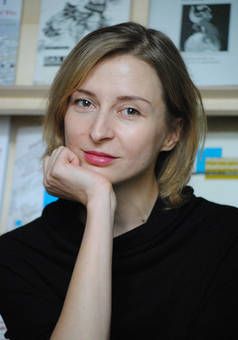
Agata Lisiak is Associate Professor of Migration Studies and Academic Director of the Internship Program at Bard College Berlin. She works at the intersections of migration studies, urban sociology, visual cultures, and gender studies, and has published internationally on urban girlhood, migrant motherhood, migrant femininities, cultural memory, and walking in the city, among other topics, with The Feminist Review; European Journal of Cultural Studies; Families, Relationships, and Societies; City: analysis of urban trends, culture, theory, policy, action; and other academic journals and collected volumes. With MA degrees in International Relations and Literary Studies, and a PhD in Media and Cultural Studies, Agata has held visiting fellowships at National Sun Yat-sen University, The Open University, and the University of Birmingham, and was a Marie Curie Actions fellow at the Institut für die Wissenschaften von Menschen in Vienna (2013–2014). She has also worked in the cultural sector as a project coordinator and curator for, among others, Berlin’s Haus der Kulturen der Welt. Agata is currently working on a book and a podcast on politics, space, and power.
Siarhei Liubimau
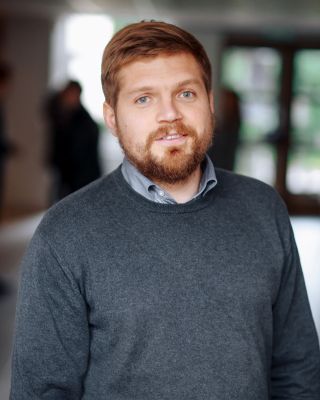
European Humanities University
Siarhei Liubimau is a co-founder and lead of the Laboratory of Critical Urbanism (2007) and Associate Professor at the Department of Social Sciences at the European Humanities University in Vilnius (2014). For his doctoral research, he worked with the issue of trans-border urbanism and studied changes of EU internal and external border regimes as urban scale specific processes. Empirically, he worked on towns on the German-Polish and Polish-Belarusian borders (Institute of Philosophy and Sociology, Polish Academy of Science, 2005-2010), as well as with the borders of Luxembourg (Bauhaus-Dessau Kolleg 'EU Urbanism', 2006-2007). Starting from 2015, he has been engaged in the Laboratory of Critical Urbanism in various research, educational and soft planning projects in the former 'nuclear' town of Visaginas in Eastern Lithuania (satellite of the decommissioned Ignalina Nuclear Power Plant). Together with Benjamin Cope, he has edited a book 'Re-Tooling Knowledge Infrastructures in a Nuclear Town' (2021), documenting LCU work in Visaginas in 2016-2020. From 2018 he is part of CityIndustries research network. He has been a fellow at the Central European University (Budapest), the Institute for Human Sciences (Vienna) and the Helsinki Collegium for Advanced Studies.
Joel McKim
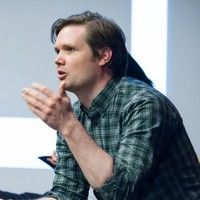
Birkbeck College, University of London
Dr. Joel McKim is Senior Lecturer in Digital Media and Culture and the Director of the Vasari Research Centre for Art and Technology. He is also the director of Birkbeck’s MA Digital Media programmes. His work focuses on the study of digital images and the impact of digital technologies on architecture, art and design. He was recently a Visiting Research Fellow at the V&A Research Institute working on a project entitled "A Prehistory of Machine Vision: Exploring the V&A Computer Art Collection." He’s the author of Architecture, Media and Memory: Confronting Complexity in Post-9/11 New York and is currently working on his second book entitled Rendered: Digital Animation in Art, Architecture and Design.
Laura Menchaca Ruiz
Laura Menchaca Ruiz is a visual anthropologist and media maker from the borderlands of the U.S. Southwest, currently residing in Bethlehem, Palestine. Her research and visual work are rooted in multi-sensory ethnography; epistemologies of the “global south”; feminist, gender and sexuality studies; decolonial approaches to space and place; and beauty as a critical method. Laura is a Visiting Assistant Professor in Digital Communications, Media and the Arts, and the head of Humanities and the Practicing Arts Division at Al-Quds Bard College. She is also the Co-Founder and head of Video Production at Element Media; Co-Founder of the feminist filmmaking collective, Ethnocine; and a Producer for the Bad Feminists Making Films podcast. Her creative work celebrates the marks that people make on the world, highlighting the extraordinary in the ordinary, and her scholarship explores the reach for autonomy amidst marginalizing constraint. Her approach to all her work treasures the local, the small-scale, the personal, the eccentric, the intimate—whatever is made out of love and caring and respect. Her work has been featured via the Philadelphia Latino Arts and Film Festival (Official Selection), Bronze Lens Film Festival (Official Selection), Society for Visual Anthropology, the Society for Cultural Anthropology’s Fieldsights, and at El Movimiento de Cultura y Arte Latino Americana (MACLA). Her work has been supported by the Palestinian American Research Center, Society for the Humanities, and the Social Science Research Council. She holds a PhD from Cornell University, an MA from Columbia University and a BA from San Francisco State University.
Adhaar Noor Desai
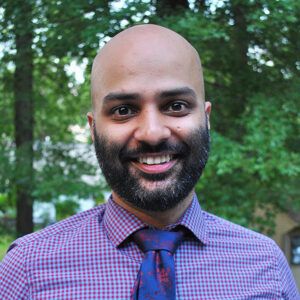
Bard College Annandale
Adhaar Noor Desai is an Assistant Professor in the Literature Program at Bard College, Annandale, where he teaches courses on Shakespeare, Poetics, Jokes, Literary Characters, and Cultural Studies. He is also one of the co-founders, along with Maria Cecire and Krista Caballero, of the OSUN-funded Experimental Humanities Collaborative Network. His scholarship, which studies theories and practices of writing pedagogy, literature’s relationship to the history of science and technology, and literature's role in the advancement of social justice, has appeared or is forthcoming in journals and collected volumes like English Literary Renaissance, Philological Quarterly, Configurations, and Teaching Social Justice through Shakespeare. He has nearly completed his first monograph, tentatively titled "Discomposing Shakespeare: Studying Early Modern Literature at the Scene of Writing," which argues that studying the writing habits of Renaissance poets can help address the contradictions inherent to writing instruction in the modern literature classroom.
Penelope Papailias
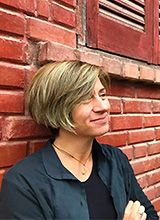
University of Thessaly
Penelope Papailias is Associate Professor of Social Anthropology at the Department of History, Archaeology and Social Anthropology at the University of Thessaly, where she directs the Laboratory of Social Anthropology.
If the keywords forming the basis for her first monograph Genres of Recollection: Archival Poetics and Modern Greece (Palgrave Macmillan, 2005) were social memory, historical culture and (paper, analog) archives, as time has passed, those fundamental categories have evolved into the core concepts - death, mourning, network culture and the (digital) database - that drive her current research on how the contemporary public sphere is constituted through forensic claims to truth treating the materiality of the dead body as evidence and the spectral presence of the dead that exposes the corpse’s mediality. Threads weaving their way throughout her thinking and research include: the co-constitution of the technological and the political, mediation as a cultural process, the ethics and responsibilities of witnessing and the structures of power that produce alterity. In addition to a Greek-language volume, entitled Digital Ethnography (2015), Penelope has written numerous articles on affective publics and social grief, visuality and violence, public death and mourning of the precarious Other and necropolitics in the context of critical media events, network culture and database aesthetics.
Penelope is particularly interested in exploring the possibilities of digital technologies in pedagogy, research, dissemination, and co-production of scholarship, the transformation of narrative in the age of database, and expanding the agenda of experimental humanities. These impulses for collaboration, conviviality and public-facing academic engagement have found expression, elaboration and inspiration in the Pelion Summer Lab for Cultural Theory and Exoerimental Humanities Lab and the “confestival” Data-Stories. Most recently she is co-founder of the initiative decolonize hellas which aims to re-view the place of Greece in geographies and genealogies of European colonialism.
Jen Richter
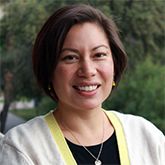
Jen Richter is an assistant professor in the School for the Future of Innovation in Society and School of Social Transformation at Arizona State University. She is also a senior sustainability scientist with the Julie Ann Wrigley Global Institute of Sustainability and Innovation at ASU.
Her research interests are at the intersections of science, environment, and society, and she teaches courses on environmental justice, science and society, and energy policy. She is especially interested in how federal policies are created and then taken up by local populations, specifically in the American West. Professor Richter focuses on energy justice, specifically in relation to the cultural, political, and environmental issues that come with larger energy transitions. Her research has focused on the environmental and social issues related to nuclear waste storage, and renewable energy production, and how policies are developed to address issues of production of resources, as well as contamination of land, water, and air. By examining how science and technology policies collide with local expectations and understandings of environment and politics, Professor Richter explores the different effects of energy technologies and policies, and their effects on society at different scales, from the local to the global.
Janina Schabig
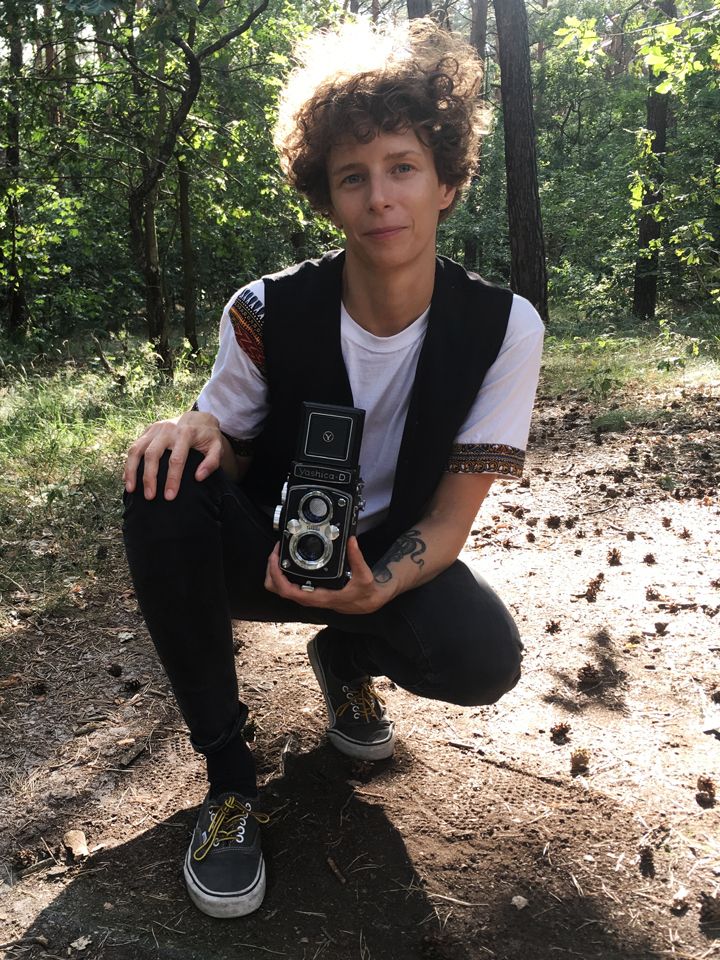
Bard College Berlin
Janina Schabig is a Lecturer and the Technical Manager for Audiovisual Media at Bard College Berlin. She facilitates student productions and leads workshops in photo, video and sound design and teaches an Introduction to Filmmaking class at the college.
Carmina Sánchez-del-Valle
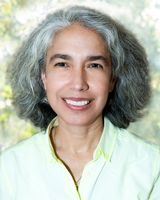
Hampton University
Carmina Sánchez-del-Valle is Professor of the Department of Architecture at Hampton University in Virginia. She received a Bachelor in Environmental Design and a Master of Architecture professional degree from the University of Puerto Rico, and a doctoral degree in Architecture from the University of Michigan. She is a licensed architect registered in Puerto Rico. Sanchez-del-Valle has taught at the University of Kansas and the Florida Agricultural & Mechanical University. She is a recipient of the Hampton University Edward L. Hamm, Jr. Teaching Excellence Award, and is an ACSA Distinguished Professor. She has been a Fulbright-Hays Senior Scholar in Egypt collaborating with Dr. Amr Abdel-Kawi, an ASEE Fellow in NASA LaRC, and a FRN-NYU Summer Scholar-in-Residence. She is a member of the collaborative Mapping Meaning founded by Krista Caballero and Sylvia Torti.
Her research has focused on the integration of computer-based tools into architectural education and practice for design thinking, and the management of design information. She has developed models for mapping historical districts as graphic relational databases. She has investigated the use of adaptive kinetic systems as analogical vehicles to teach about digital modeling, complex systems, and sustainability. She has written about graphic novels as thick descriptions of the city. Currently, she teaches the design research studio and advanced topics in building technology and community design. This last is connected to the micro seminar “Living by Water” she co-teaches with Dr. Amee Carmines from English Literature.
Dominique Townsend
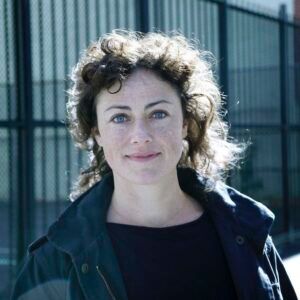
Bard College Annandale
Dominique Townsend is Assistant Professor of Buddhist Studies at Bard College in Annandale on Hudson, NY. Her primary research interests include Tibetan Buddhist history, aesthetics, cultural production, poetics, and translation theory. Columbia University Press will release her first scholarly monograph, A Buddhist Sensibility: Aesthetic Education at Tibet's Mindröling Monastery, in March 2021. She is also a poet and published a book of poems called The Weather & Our Tempers with Brooklyn Arts Press in 2013. She has an MTS from Harvard Divinity School and a PhD from Columbia University.
Patricia Zalamea
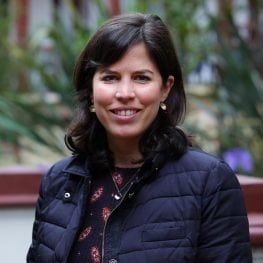
Universidad de los Andes, Colombia
Patricia Zalamea has a BA in art history (1997) from John Cabot University in Italy and a PhD in art history from Rutgers University (2007). She is Associate Professor of Art History at the Universidad de los Andes in Bogotá, Colombia, where she was the Dean of the School of Arts and Humanities between 2015 and 2021. In addition to developing the first art history undergraduate program in Colombia (2010), she is one of the founders and board members of the Colombian Chapter (CCHA) of the Comité International d’Histoire de l’Art (CIHA), as well as an advocate for public policies on cultural heritage, digital humanities and the place of liberal arts in Latin American higher education. Participation in the Getty program Unfolding Art History in Latin America (2012-2014) and in projects such as Spolia Sancta (2019-2021) allowed her to foster regional and international connections. An active member of diverse academic networks and editorial boards, she continues to advance the development of the field of art history in Latin America as part of the steering committee of the Transregional Academy on Latin American Art of the Deutsches Forum für Kunstgeschichte (2019-2022). Her fields of study include Colonial Latin American art, Global Renaissance art, the reception of Classics in a Colonial context, history of the print, and portraiture. She is currently coordinating a new minor in Narrative Science together with colleagues from the School of Science.
Staff
Aarati Akkapeddi

EHCN Developer for International Digital Projects & Curriculum
Aarati Akkapeddi is a coder, interdisciplinary artist and educator based in Lenapehoking (Brooklyn, NY). They work for The Experimental Humanities Collaborative Network, where they create digital spaces and tools. In their creative practice, they combine archival material, code, machine learning and analog techniques (photography & printmaking) to create artwork about intergenerational/collective memory. Their creative work has been supported by institutions such as Ada X, The Interactive Telecommunications program at NYU, ETOPIA Center for Art & Technology, and LES Printshop. They currently teach creative coding in the Design & Technology department at Parsons.
Luisa Colón

Bard College Annandale
Luisa Colón is the Program Manager for the OSUN-funded Experimental Humanities Collaborative Network (EHCN). In this role, she helps facilitate network operations and maintain meaningful collaborations among all EHCN partner institutions.
Prior to joining the Bard community, Luisa worked for various private and nonprofit organizations in the fields of international education and community development. She managed programming in Latin America for Amigos de las Américas and The New School and taught English as a Second Language in Thailand and New York. Her interests lie in the intersections of community-based development, international relations and international education. She appreciates the opportunities to learn and do more about meeting local and global challenges and to engage with diverse groups of people.
Luisa earned a BS in Business Administration with concentrations in International Management and Marketing from Boston University.
Anna Hallett Gutierrez
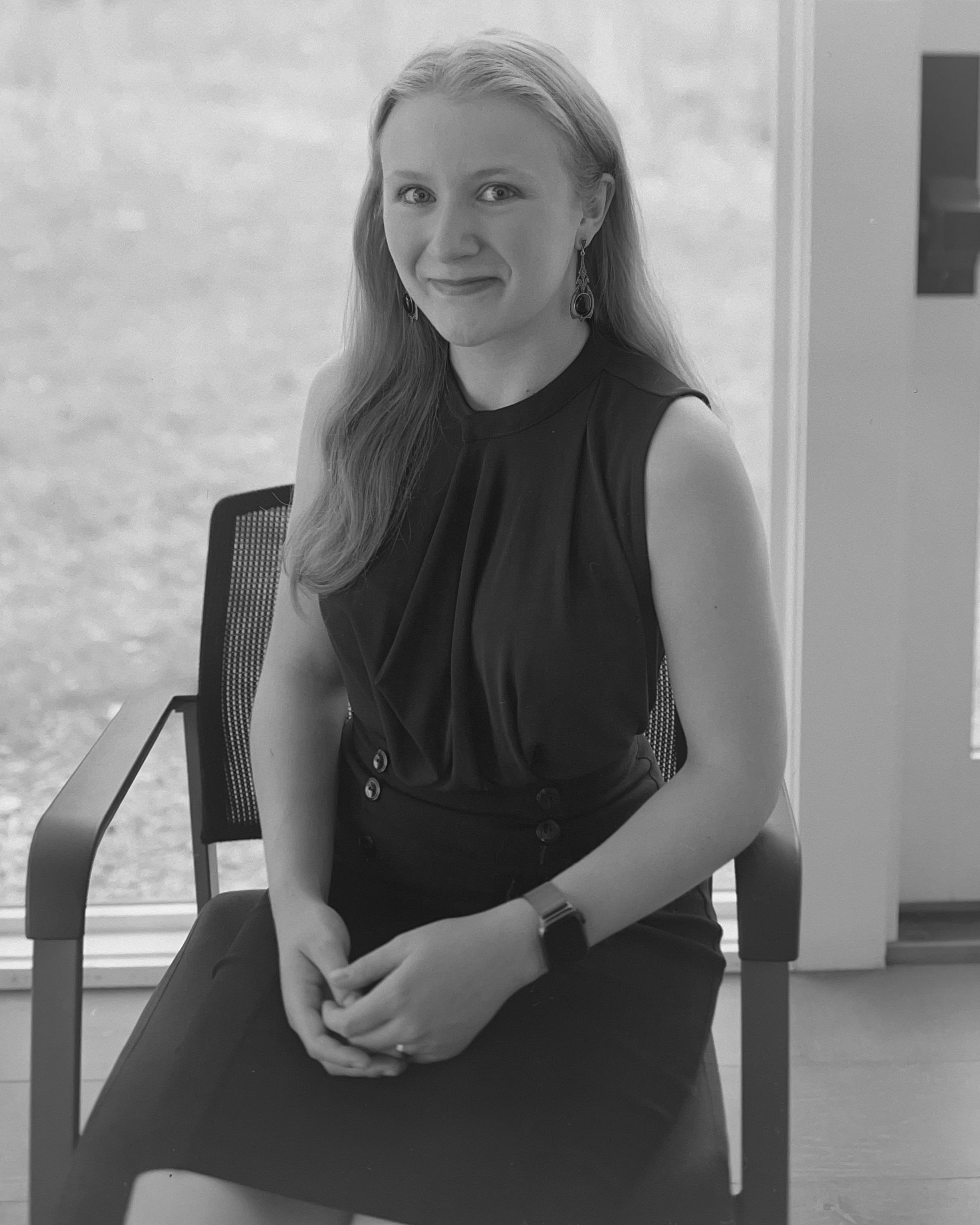
Anna Hallett Gutierrez is the Program Assistant for the OSUN-funded Experimental Humanities Collaborative Network and is the Coordinator for the Center of Experimental Humanities at Bard College. She is based at the Center for Experimental Humanities in Annandale-on-Hudson, New York.
A graduate of Bard College Conservatory of Music’s double-degree program, Ms. Hallett Gutierrez holds a BA in philosophy and a BM in violin performance.
Fellows
Sam Gilchrist Hall
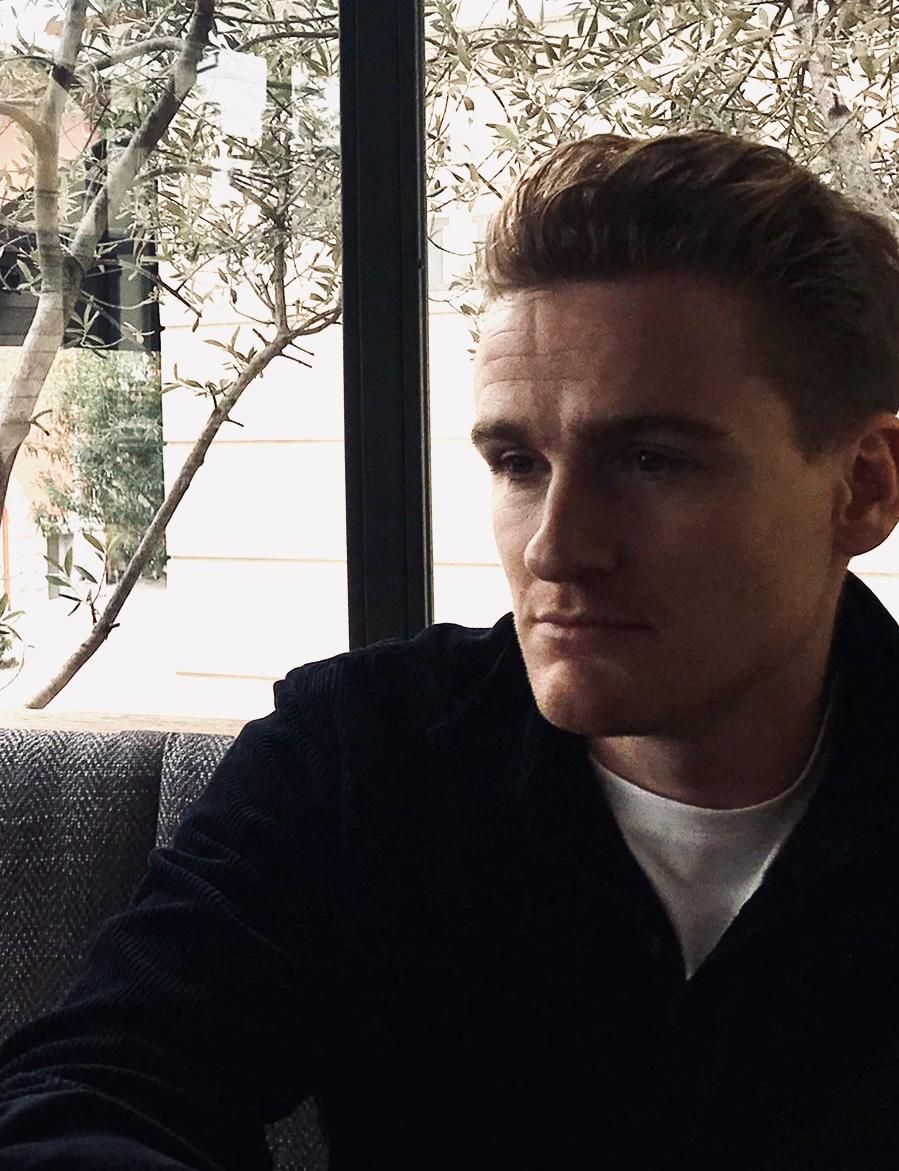
I am a Postdoctoral Research Fellow for the CEU OSUN-Experimental Humanities Collaborative Network (EHCN) and Department of Gender Studies. My main research area is the complex interplay between history and fiction in early modernity. Since my doctoral studies, I have been fascinated by the capacity of foolish, insane, decadent and degenerate figures to tell profound, subversive truths, which not only speak back to power, but also inculcate alternative modes of reasoning, reflection and political action. My first monograph examined Shakespeare’s fools in the context of classical and humanist intellectual cultures. It established that the fool’s paradoxical wisdom was intrinsic to what Keats famously called Shakespeare’s “Negative Capability”, a crucial facet of the plays’ implicit philosophical vision. More recently, with István H. Szilágyi and László Kelemen, I worked on a co-authored book-project, entitled Changing Legal and Civic Culture in an Illiberal Democracy (Routledge: New York, 2021), a topic on which I have also been published in Times Higher Education.
My current research focuses on the development of ideas of social, sexual and moral degeneracy in utopian fiction from the early modern period to the present. It aims to synthesise my work on the current resurgence in nationalism, which exploits fears of degeneration to subjugate sexual and ethnic minorities, with my doctoral research. An extract of my first novella, Inside Virgil Caine, was longlisted for the 2021 Alpine Fellowship and has been accepted for publication. As a teacher and practitioner, I am especially enthusiastic about creating courses that bring together the humanities, creative practices, and contemporary forms of activism.
Fields of Interest
· Critical Theory
· Early Modern Literature and Culture
· Classical Thought
· Drama
· Nationalism(s)
· Literature and Political Theory
· Aesthetics
Fotini Gouseti

Fotini Gouseti (1974) is a visual artist and a Ph.D. candidate in Anthropology at the Department of History, Archaeology and Social Anthropology of the University of Thessaly, Greece. She holds a B.F.A. in Painting and a B.F.A. in Printmaking from the Athens School of Fine Arts (Greece); and an M.F.A. from the Dutch Art Institute (the Netherlands). Gouseti’s artistic practice and academic research explore the role of art in society. She is mainly interested in the ways society evolves on collective trauma and focuses on such issues as divided memory, gender, class and the local versus the Other.
Gouseti’s work explores the role of art in society. Since 2012, she has been working on the research- based project The Present as a Result of the Past (PRP). Additionally, in 2014 Gouseti initiated the public event Renkonto, an encounter of people from neighbouring countries with tense diplomatic relations. During the same year, she started the project The Least Wanted Travel the Most, an attempt to map different cases of migration in Europe. In 2020, in the context of the EU project Risk Change, she presented at MMSU_Rijeka a research-based work aimed at expanding decolonial thinking, entitled Mauro Fiumano.
Isabella Haid
Isabella Haid is a postbac research fellow for the Experimental Humanities Collaborative Network and holds her BA in American and Indigenous Studies from Bard College. Her work intertwines histories of labor, technology, and design to critically examine digital infrastructure, governance, and their subversive potentials. She was the 2022 award recipient of the Professor Bernard Tieger Award in Labor, Community, and History at Bard.
Isabella has given lectures related to critical play and digital design, such as “Critical Meme-making and Artificial Intelligence.” She works and plays through digital and physical archives, oral histories, zines, computational experiments, video games, and writing.
Vivien Sansour
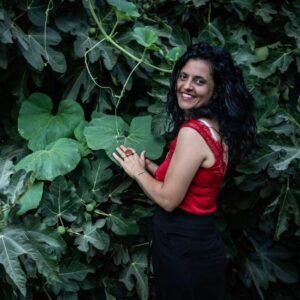
EXPERIMENTAL HUMANITIES COLLABORATIVE NETWORK (EHCN) DISTINGUISHED ARTISTIC FELLOW
Vivien Sansour is an artist, researcher, and writer. Vivien uses installations, images, sketches, film, soil, seeds, and plants to enliven old cultural tales in contemporary presentations and to advocate for seed conservation and the protection of agrobiodiversity as a cultural/political act. Vivien founded the Palestine Heirloom Seed Library as part of this work with local farmers and has been showcased internationally, including at the Chicago Architecture Biennale, Victoria and Albert Museum in London, Dutch Design Week in Eindhoven, Berlinale, Istanbul Biennale, Fotoindustria, and the Venice Art Biennale. Vivien works to bring threatened varieties “back to the dinner table to become part of our living culture rather than a relic of the past.” This work has led her to collaborate with award-winning chefs, including Anthony Bourdain and Sammi Tamimi. A former Harvard University Fellow, Vivien is currently teaching at Bard College in the Experimental Humanities department where she is developing a course on human and nature design in the Hudson Valley entitled, “The Belly is A Garden”- El Batin Bustan 2022-2023.
